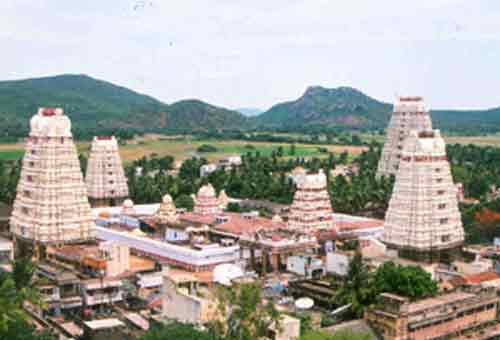
Ramanathaswamy Temple is an important pilgrimage site for the followers of Hinduism. It is believed that a visit to this temple washes away one’s sins and brings salvation (moksha). Located on an island off the Sethu coast of Rameshwaram, Ramanathaswamy Mandir can be reached via Pamban Bridge across the sea. Being situated in Rameswaram, the shrine is popularly known as Rameshwaram Temple.
Ramanathswamy Temple has twenty two wells in its complex. Being the main attraction of this temple, the wells are also recognized with their distinct properties. All of these wells have water of different taste, temperature, salinity and have curative properties as well. It is said that these wells were made by Lord Rama himself, when he fired arrows in the sand.
Stretched over a vast area of 15 acres, Rameswaram Temple is the typical specimen of Dravidian style of architecture. The skyscraping gopurams (spires) truly dominate the skyline of Rameshwaram. The shrine is acknowledged for having the largest temple hallway in India. This pillared corridor extends to 4000 feet in length, embracing more than 4000 pillars. Erected on a raised plinth, granite pillars are intricately carved with beautiful images. A hard fact about this corridor reveals that the rock doesn’t belong to the island and it was imported from somewhere across the sea.
Encompassing nine levels, the eastern Rajgopuram (spire) soars to the height of 126 feet. However, the western ‘gopuram’ is not as high as the eastern ‘gopuram’, still it is equally captivating. The temple comprises numerous ‘mandaps’ having small shrines, dedicated to other deities. The colossal image of Nandi (Lord Shiva’s Bull) captures the attention, due to its sheer size. It measures 12 feet in its length and 9 feet in its height. High fortifications encircle the temple, making a rectangle along with big pyramidal ‘gopura’ doorways on every side.

